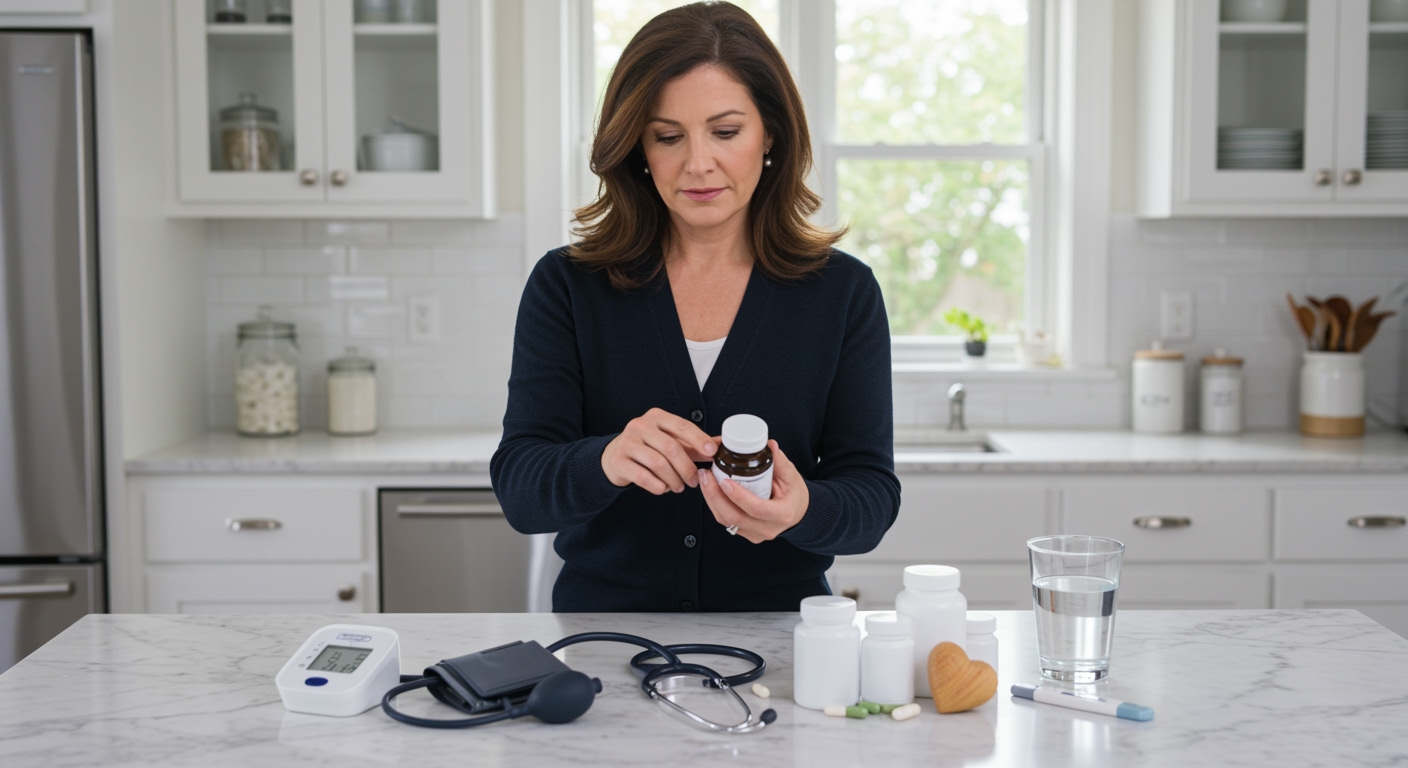✪ Key Takeaway: CoQ10 can lower blood pressure further, making it risky for hypotension patients without medical supervision.
Introduction
Your friend swears by CoQ10 for heart health, but you have low blood pressure and wonder if this supplement is safe for you.
Many people with hypotension face this exact dilemma when they hear about CoQ10 benefits for cardiovascular health.
Hi, I’m Abdur, your nutrition coach and today I’m going to explain whether low blood pressure patients should take CoQ10 and what you need to know before making this decision.
What Is CoQ10 And How Does It Affect Blood Pressure?
Coenzyme Q10 is a naturally occurring compound that your body produces to help cells generate energy.
Your heart muscle contains the highest concentration of CoQ10 because it works constantly and needs tremendous energy production.
As you age, your body produces less CoQ10, which is why many people consider supplementation.
Research shows that CoQ10 can reduce blood pressure by improving the function of blood vessel walls and reducing oxidative stress.
The supplement works by enhancing nitric oxide production, which helps blood vessels relax and widen.
Studies indicate that CoQ10 supplementation can lower systolic blood pressure by 11-17 mmHg and diastolic pressure by 8-10 mmHg in people with high blood pressure.
✪ Fact: Your body produces about 500mg of CoQ10 daily, but production peaks at age 25 and declines thereafter.
Why Low Blood Pressure Patients Should Be Cautious?
Low blood pressure, or hypotension, means your blood pressure readings are consistently below 90/60 mmHg.
When you already have low blood pressure, taking CoQ10 could potentially drop your levels even further.
This additional decrease might cause symptoms like dizziness, fainting, fatigue, or difficulty concentrating.
Your brain and other vital organs need adequate blood flow to function properly.
If CoQ10 lowers your already low blood pressure, you might experience reduced organ perfusion, which means your organs do not receive enough oxygen and nutrients.
Some people with hypotension report feeling weak or lightheaded when standing up quickly, and CoQ10 could worsen these symptoms.
✪ Note: Blood pressure below 90/60 mmHg is considered low, but symptoms matter more than numbers alone.
Are There Any Benefits For Hypotension Patients?
Despite the blood pressure concerns, CoQ10 offers several cardiovascular benefits that might help some hypotension patients.
The supplement can improve heart muscle function and energy production, which might help your heart pump more efficiently.
Better heart function could potentially help maintain adequate blood flow even with lower pressure readings.
CoQ10 also acts as a powerful antioxidant, protecting your cardiovascular system from damage caused by free radicals.
Some research suggests that CoQ10 might help improve exercise tolerance and reduce fatigue, which are common complaints among people with low blood pressure.
However, these potential benefits do not outweigh the risk of further lowering your blood pressure without proper medical supervision.
✪ Pro Tip: Focus on proven methods like increasing salt intake and staying hydrated before considering supplements.
What Should You Do Before Taking CoQ10?
Never start CoQ10 supplementation without consulting your doctor if you have low blood pressure.
Your healthcare provider needs to evaluate your specific situation and determine whether the benefits outweigh the risks.
They might recommend starting with a lower dose and monitoring your blood pressure closely during the initial weeks.
Regular blood pressure monitoring becomes crucial if your doctor approves CoQ10 supplementation.
You should also discuss any medications you take because CoQ10 can interact with blood thinners and other cardiovascular drugs.
Consider addressing your low blood pressure through lifestyle modifications first, such as increasing fluid intake, adding more salt to your diet, and wearing compression stockings.
These approaches are safer and often more effective than supplements for managing hypotension.
✪ Note: Keep a blood pressure log for at least two weeks before and after starting any new supplement.
The Bottom Line
CoQ10 can lower blood pressure, making it potentially dangerous for people who already have hypotension without proper medical supervision.
Your health is too important to gamble with supplements when safer alternatives exist.
I would love to hear about your experience with low blood pressure management or any questions you have about CoQ10 in the comments below.
References
At NutritionCrown, we use quality and credible sources to ensure our content is accurate and trustworthy. Below are the sources referenced in creating this article:
- PMC: Coenzyme Q10 and Cardiovascular Health
- British Journal of Cardiology: Coenzyme Q10 and Cardiovascular Disease Overview
- Cleveland HeartLab: CoQ10 Heart Health Benefits
- Mayo Clinic: Coenzyme Q10 Drug Information





